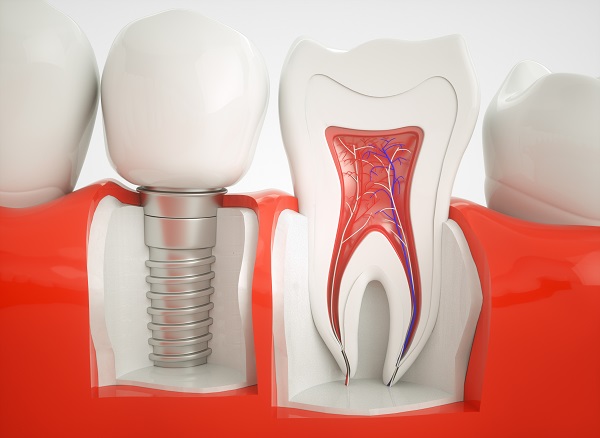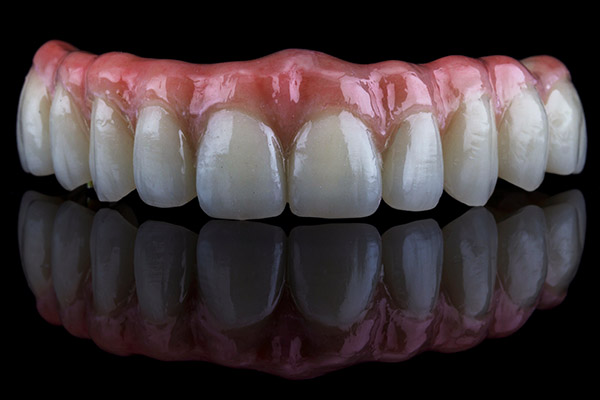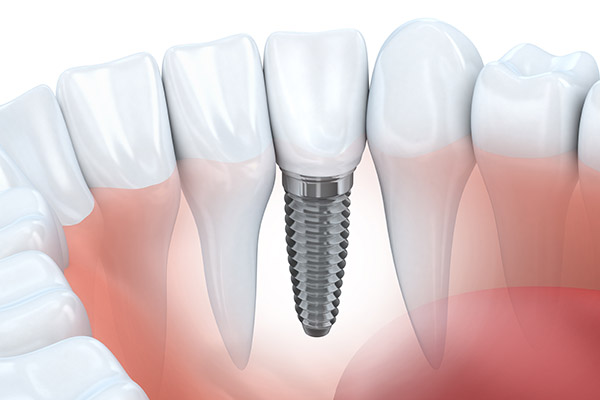Health Benefits of Dental Implants for Your Jawbone

One common option for replacing missing teeth is dental implants. Dental implants are popular because they look and function just like regular teeth. Replacing missing teeth is always recommended in order to avoid negative consequences. Read on to learn more about other benefits of getting dental implants, especially for your jawbone.
Benefits of dental implants
Bone needs stimulation to maintain both its density and form. In regards to the alveolar bone that surrounds and supports teeth, the stimulation comes from the teeth themselves. When a person loses a tooth, the lack of stimulation eventually causes loss of the bone. The width of the bone often decreases significantly during the first year after tooth loss.
The height also decreases over the following years. Tooth loss often leads to particular functional and aesthetic problems. The problems only become worse as a person loses more teeth. And after the alveolar bone is lost, the basal bone underneath it will also begin to resorb or melt away.
How bone can be regrown or preserved
A general dentist may recommend grafting bone into the extraction sockets. This may be done at the time of either tooth loss or removal. It can help to preserve the bone volume needed for the placement of the dental implant. Various surgical techniques can also help to regrow bone that has been lost. This can also help to provide an adequate bone substance for anchoring dental implants.
Implant benefits for the jawbone
One of the main reasons dental implants are often suggested is the maintenance of jawbone. Bone requires stimulation in order to stay healthy. In the course of the dental implant process, the implants fuse to the bone. This is beneficial because they stabilize it and eventually prevent further bone loss. Resorption is an inevitable process that is characterized by loss of bone when it is no longer connected to or supporting teeth. Luckily, dental implants can stop this process and preserve the bone.
Oral care tips for dental implants
Once a person has adequate bone, the rest of the implant surgery can proceed. Most implants are successful and there are some steps people can take to make them last for a long time. Practicing good oral hygiene is very important. A patient should floss once every day and brush twice a day.
Using interdental brushes will allow a patient to clean the hard to reach areas around the dental implant. Not smoking can be beneficial because smoking often weakens the bone structure. This can contribute to implant failure. Seeing the dentist regularly is also advisable. Cleanings and dental checkups every six months can help make sure the dental implant is in good condition. Chewing on hard foods should also be avoided.
Takeaway
Dental implants are replacement tooth roots that help to stimulate the bone, which helps to preserve it. This prevents the bone resorption that usually occurs with tooth loss. But you should always remember that sticking to a good oral hygiene routine is immensely important. Brushing and flossing regularly, regular dental visits, and avoiding harmful habits can ensure your implant lasts for a long time.
Are you considering dental implants in the Atlanta area? Get more information at https://atlantapamperedsmiles.com.
Check out what others are saying about our services on Yelp: Read our Yelp reviews.
Recent Posts
When it comes to replacing missing front teeth, there are options available. This article reviews some popular tooth replacement options so you can preserve your smile and your health. Due to their position, losing front teeth may undermine your self-esteem and make you less inclined to smile for photographs. However, it is about more than…
Many circumstances might cause you to look into replacing a missing tooth, regardless of your age. Those who do not take care of their teeth and gums are at particularly high risk for tooth loss, as both gum disease and decay can damage gums, tooth roots, and teeth. Cavities can lead to significant damage, as…
Dental crowns are a common restorative solution that protects damaged teeth, improves appearance, and restores proper function. The placement process follows a common step-by-step restoration. Understanding this process can help alleviate any uncertainty you may have before an upcoming appointment and prepare you for what you can expect. Each stage of the dental crown placement…
Implant overdentures may be the best investment when it comes to options for replacing missing teeth. Although you have many options for replacing missing teeth, implant overdentures may be the right option for you. Implant overdentures are known as “snap-on dentures” because the denture connects to the implant via a snap assembly in which a…


